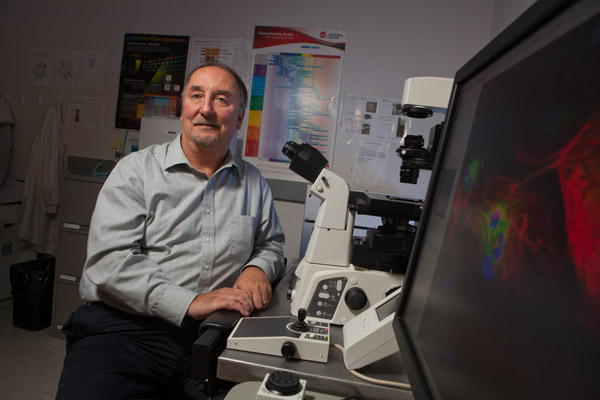Evaluation of delayed LNFPIII treatment initiation protocol on improving long-term behavioral and neuroinflammatory pathology in a mouse model of Gulf War Illness
Chemical overexposures and war-related stress during the 1990-1991 Gulf War (GW) are implicated in the persisting pathological symptoms that many GW veterans continue to endure. These symptoms culminate into a disease known as Gulf War Illness (GWI) and affect about a third of the GW veteran population. Currently, comprehensive effective GWI treatment options are unavailable. Here, an established GWI mouse model was utilized to explore the (1) long-term behavioral and neuroinflammatory effects of deployment-related GWI chemicals exposure and (2) ability of the immunotherapeutic lacto-N-fucopentaose III (LNFPIII) to improve deficits when given months after the end of exposure. Male C57BL6/J mice (8-9 weeks old) were administered pyridostigmine bromide (PB) and DEET for 14 days along with corticosterone (CORT; latter 7 days) to emulate wartime stress. On day 15, a single injection of the nerve agent surrogate diisopropylfluorophosphate (DFP) was given. LNFPIII treatment began 7 months post GWI chemicals exposure and continued until study completion. A battery of behavioral tests for assessment of cognition/memory, mood, and motor function in rodents was performed beginning 8 months after exposure termination and was then followed by immunohistochemcal evaluation of neuroinflammation and neurogenesis. Within tests of motor function, prior GWI chemical exposure led to hyperactivity, impaired sensorimotor function, and altered gait. LNFPIII attenuated these motor-related deficits and improved overall grip strength. GWI mice also exhibited more anxiety-like behavior that was reduced by LNFPIII; this was test-specific. Short-term, but not long-term memory, was impaired by prior GWI exposure; LNFPIII improved this measure. In the brains of GWI mice, but not in mice treated with LNFPIII, glial activation was increased. Overall, it appears that months after exposure to GWI chemicals, behavioral deficits and neuroinflammation are present. Many of these deficits were attenuated by LNFPIII when treatment began long after GWI chemical exposure termination, highlighting its therapeutic potential for veterans with GWI.
Jessica M Carpenter, Kyle A Brown, Lukas Veltmaat, Helaina D Ludwig, Kendall B Clay, Thomas Norberg, Donald A Harn, John J Wagner, Nikolay M Filipov. Brain Behav Immun Health. 2022 Nov 8;26:100553. doi: 10.1016/j.bbih.2022.100553. eCollection 2022 Dec.


